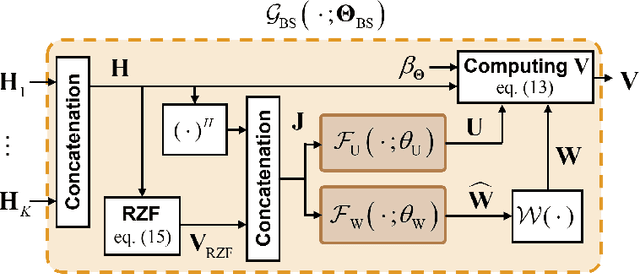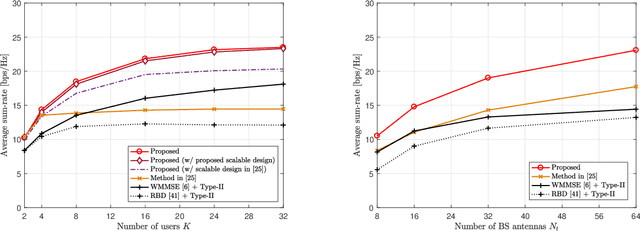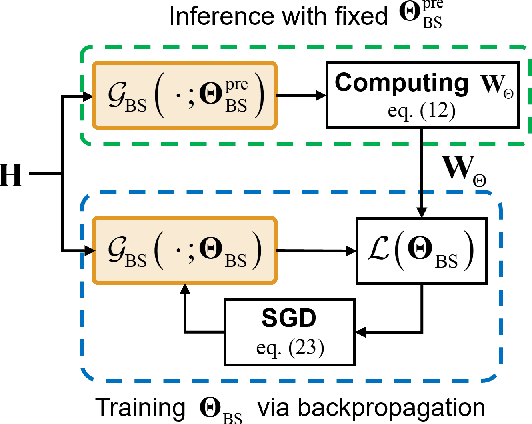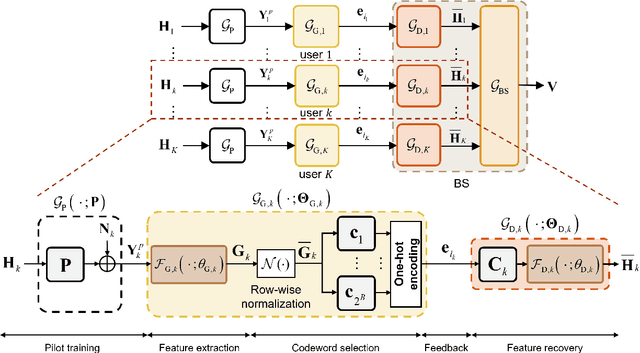Jeonghyeon Jang
Deep Learning for Multi-User MIMO Systems: Joint Design of Pilot, Limited Feedback, and Precoding
Sep 21, 2022



Abstract:In conventional multi-user multiple-input multiple-output (MU-MIMO) systems with frequency division duplexing (FDD), channel acquisition and precoder optimization processes have been designed separately although they are highly coupled. This paper studies an end-to-end design of downlink MU-MIMO systems which include pilot sequences, limited feedback, and precoding. To address this problem, we propose a novel deep learning (DL) framework which jointly optimizes the feedback information generation at users and the precoder design at a base station (BS). Each procedure in the MU-MIMO systems is replaced by intelligently designed multiple deep neural networks (DNN) units. At the BS, a neural network generates pilot sequences and helps the users obtain accurate channel state information. At each user, the channel feedback operation is carried out in a distributed manner by an individual user DNN. Then, another BS DNN collects feedback information from the users and determines the MIMO precoding matrices. A joint training algorithm is proposed to optimize all DNN units in an end-to-end manner. In addition, a training strategy which can avoid retraining for different network sizes for a scalable design is proposed. Numerical results demonstrate the effectiveness of the proposed DL framework compared to classical optimization techniques and other conventional DNN schemes.
Deep Learning-based Limited Feedback Designs for MIMO Systems
Dec 19, 2019



Abstract:We study a deep learning (DL) based limited feedback methods for multi-antenna systems. Deep neural networks (DNNs) are introduced to replace an end-to-end limited feedback procedure including pilot-aided channel training process, channel codebook design, and beamforming vector selection. The DNNs are trained to yield binary feedback information as well as an efficient beamforming vector which maximizes the effective channel gain. Compared to conventional limited feedback schemes, the proposed DL method shows an 1 dB symbol error rate (SER) gain with reduced computational complexity.
 Add to Chrome
Add to Chrome Add to Firefox
Add to Firefox Add to Edge
Add to Edge